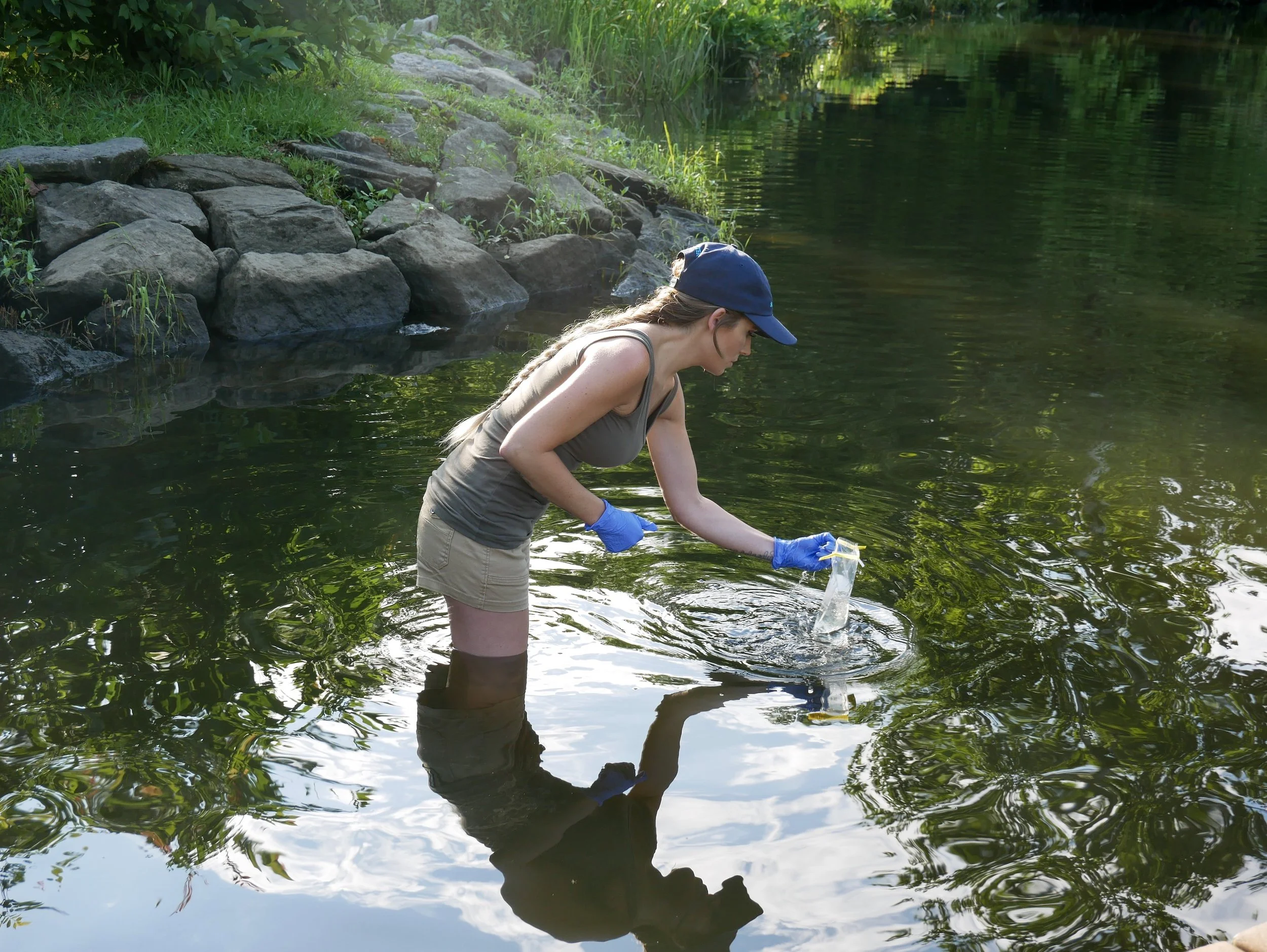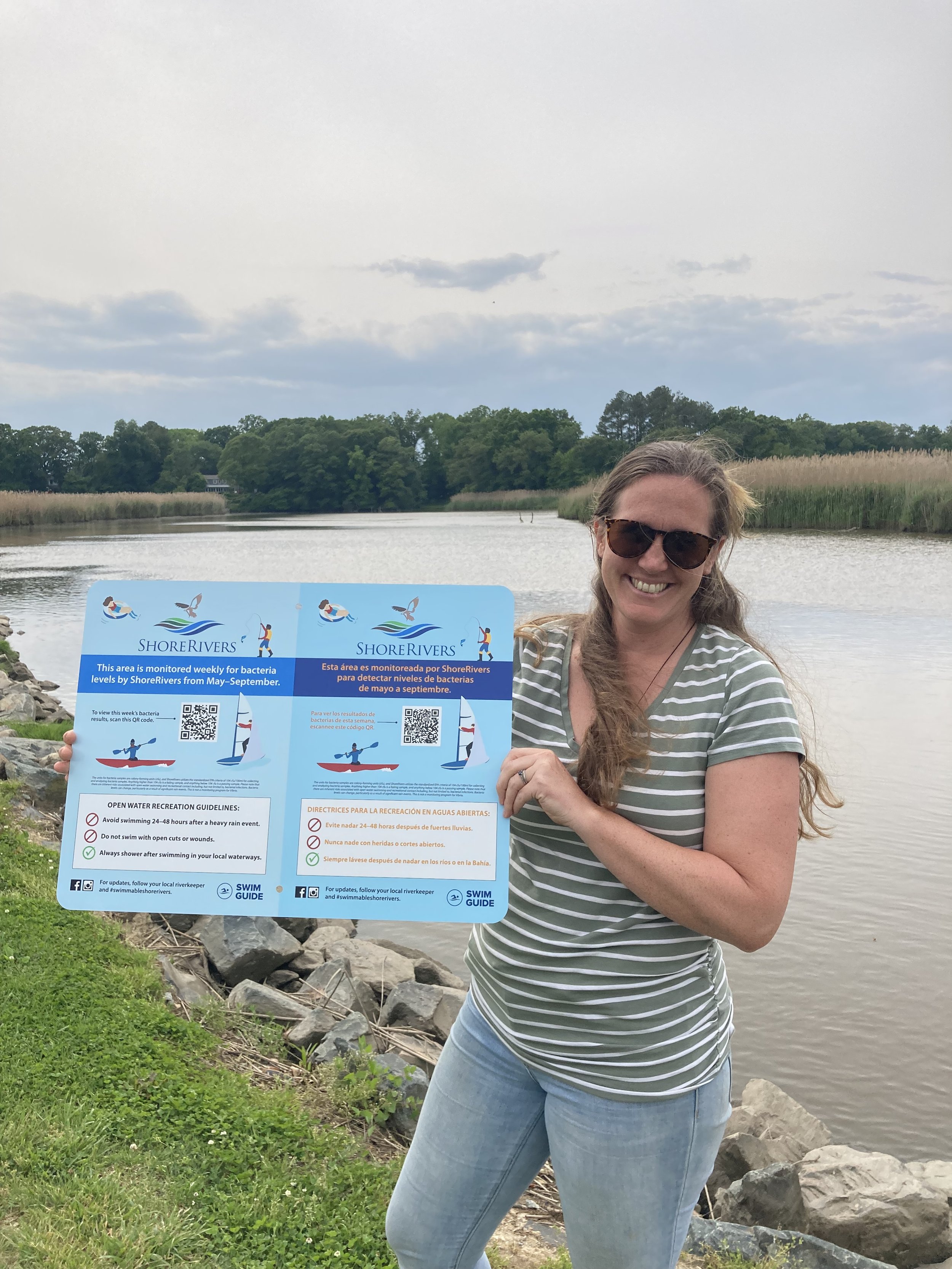As summer gives way to fall and we wrap up our seasonal Swimmable ShoreRivers program, we can't help but feel a bit disappointed by what our bacteria results have shown this year — from pass rates 24% lower than last year across our watersheds and our first ever site that failed to meet safe swimming standards 100% of the time it was tested, it's been impossible to see the data come in week after week and not have concerns.
This spring and summer have brought more rain than usual — in May alone, parts of Maryland received nearly 9.5 inches of rain — five inches more than the 10-year average. June added another 4.5 inches, again above average. And while we know that rain replenishes our farms, gardens, and forests, too much too quickly has consequences for our rivers. Stormwater runoff carries with it everything on the land — fertilizer, pet waste, sewage from failing septic systems, and pollutants from roads — sending it downstream into the places where we‘re swimming, fishing, and boating.
Through our Swimmable ShoreRivers program, we monitor bacteria levels weekly at over 50 recreation sites across the region from Memorial Day to Labor Day. This year’s rainfall has meant more frequent “fail” results under the Maryland Department of the Environment’s (MDE) threshold for safe swimming. These results can be frustrating and sometimes alarming, especially for families hoping to cool off with a swim in the water. As parents, pet owners, and boaters, we regularly check the bacteria counts at our favorite swimming spots, and share that frustration when the closest ones to our launch site test too high to risk our loved ones’ health.
Here’s why it matters. The MDE standard for swimming areas is 104 colony-forming units (CFU) of Enterococci per 100 milliliters of water. That’s a technical way of saying: once bacteria concentrations reach that level, the likelihood of gastrointestinal illness, skin infections, or ear infections goes up. It’s not a magic line where danger suddenly begins, but a benchmark informed by decades of epidemiological data. It doesn’t mean that swimming, boating, or kayaking is impossible. Risk is gradual, not absolute, and our monitoring exists to give you information to make the most educated choice for yourself.
We also know that this is only part of the story. The above average spring rainfall increased the freshwater flow into the Chesapeake Bay by 20% this year, while the temperatures in June and July were the fourth and second highest in 131 years, respectively. These factors are contributing to higher-than-average hypoxia and anoxia (sometimes known as low oxygenated “dead zones”) in the Bay. Warming waters linked to climate change also create better conditions for pathogens like Vibrio vulnificus, while humans ourselves may contribute things like Staphylococcus bacteria (commonly coming off of swimmers in the water) and the Enterococci our program measures for each week. These challenges are real. But they are also reminders that our rivers are living systems that are both dynamic and responsive, and — if we reduce the pressures we place on them — capable of healing.
At ShoreRivers, we believe the story doesn’t end with failure — it begins there. Our job is not just to measure problems but to provide solutions. By understanding what drives high bacteria levels, we can act together to reduce them. Rain will always fall, but what happens on the land before it reaches our rivers is up to us.
So how do we move forward? Together. We need investments in green infrastructure that slow and filter runoff, stronger agricultural best practices, and upgrades to outdated septic systems and aging sewer infrastructure. These changes require collaboration across communities, governments, and landowners, as well as regulations and funding at both state and federal levels, which have admittedly been harder to come by lately. And just as importantly, we need access to reliable information and shared values — families checking bacteria results before they swim, neighbors cleaning up after pets, and all of us recognizing that actions on land have impacts downstream and that these are issues that have to start being priorities at every level.
At ShoreRivers, we are committed to being a trusted source of science and a partner in solutions. We see our rivers as living, resilient places that sustain us. The higher fail rates we’ve seen this season are not reasons to give up — they’re reasons to lean in. They remind us why our work matters, and why hope, collaboration, and stewardship are more powerful than fear.
The Bay and its rivers need us. Every raindrop that falls is an opportunity to act: to choose better land practices, to invest in cleaner water, and to ensure that future generations can swim, fish, and find joy in these waters. With science as our guide and community as our strength, we can make our rivers swimmable — rain or shine.
For Clean Water,
Ben Ford, Miles-Wye Riverkeeper
Matt Pluta, Choptank Riverkeeper
Annie Richards, Chester Riverkeeper
Zack Kelleher, Sassafras Riverkeeper






